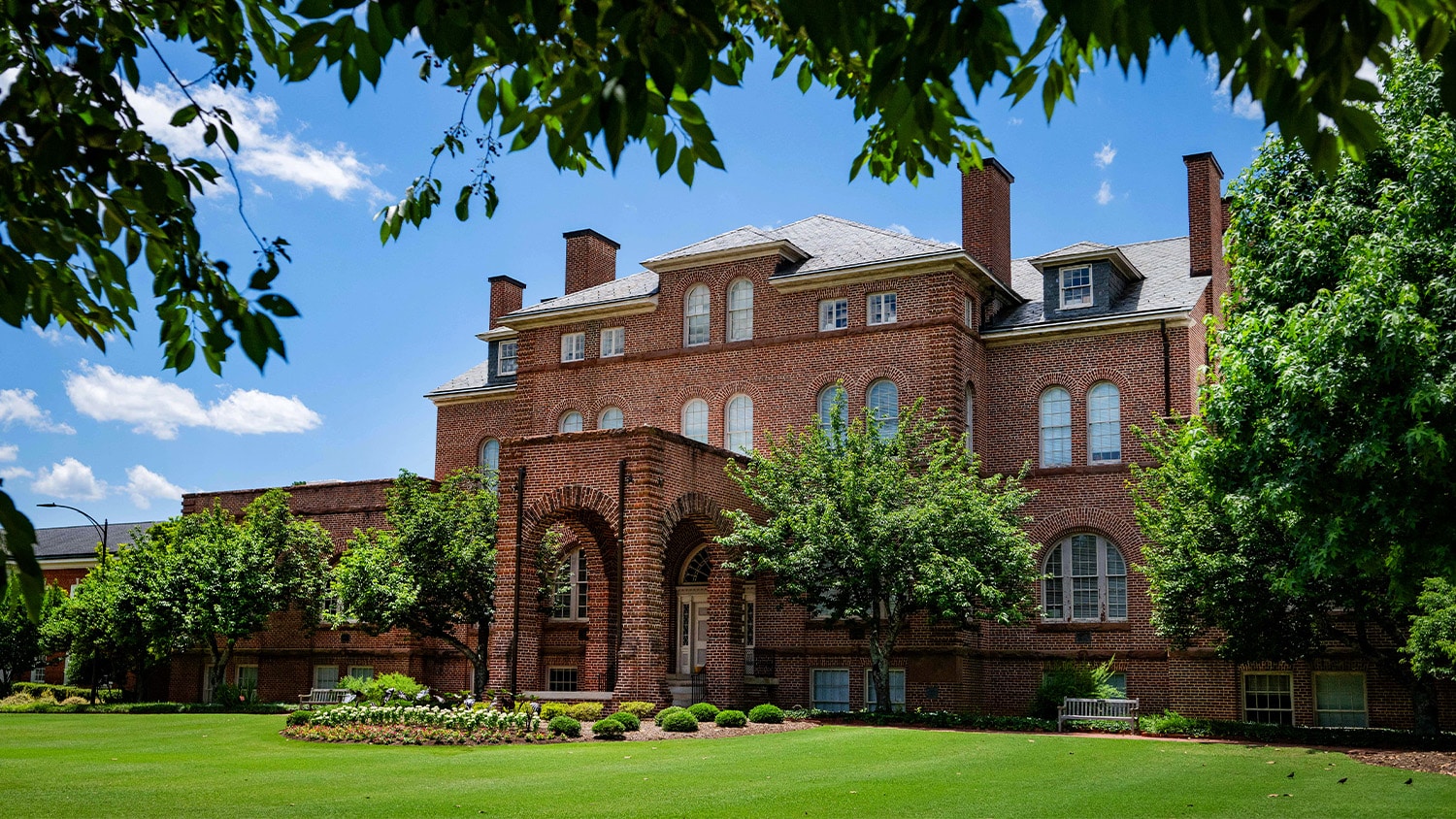Collaborating for Transfer Student Success
The Community College Collaboration paves a path toward an NC State bachelor’s degree, supporting transfer students with robust services and a caring community along the way.
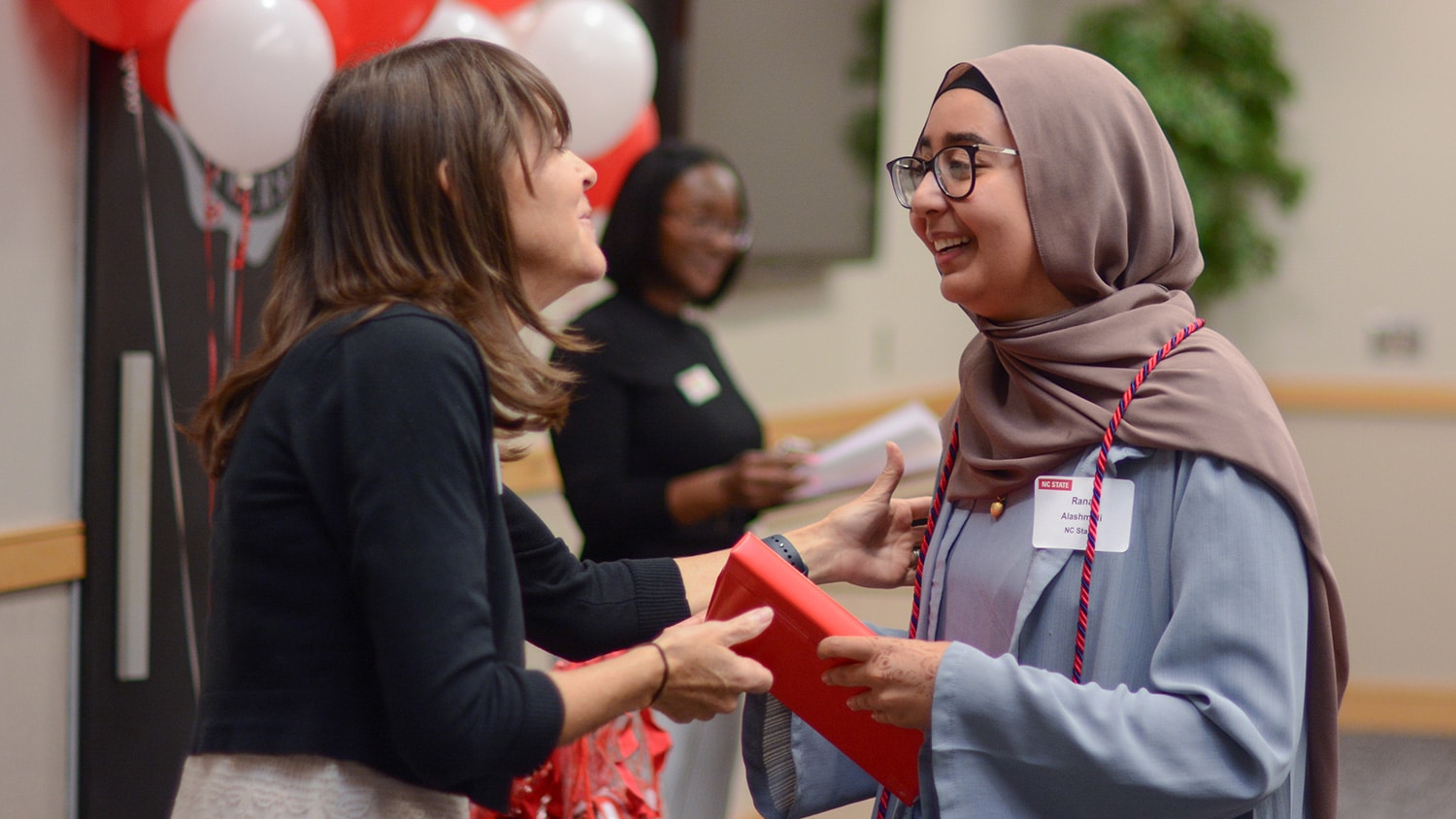
It’s Jai Chadha’s first year at NC State as a transfer student, but most wouldn’t be able to tell given how well he knows Wolfpack traditions and his way around campus. Sarah Allen also transferred to NC State well-equipped, knowing that a dedicated support system has her back as she juggles finishing her bachelor’s degree and raising a family.
These students, and many others, are making the most of Community College Collaboration (C3), a transfer program that paves a smooth path from community colleges to finishing a degree at NC State.
Building Community
One major benefit of C3 is that students are guaranteed enrollment at NC State after completing an associate degree at a participating community college. However, students also choose C3 for the community-building, networking and robust academic advising services — and how it makes transferring to NC State a smooth and affordable option.
The heart of C3’s programming is helping students make connections and build community so that when they transfer, they already feel they already have a support system on campus.
“One of the main things that I wanted coming into NC State was a sense of community.”
“For transfer students, we know transfer shock is real, and we know that many of our students come from towns smaller than NC State’s freshman class,” said Martha Harmening, the director of C3. “Even for students from more urban areas, NC State’s a big place, and that transition can be very daunting.”
Raleigh native Allen didn’t have to move to a new city to attend NC State. Still, the C3 program helped ease her transition from Wake Tech Community College. Her community college courses had mostly been online, and she wanted to prepare for the change to taking in-person classes at a university as big as NC State. The connections she made with other C3 students and program staff helped her feel supported, especially as a single mother.
“Having a group that is going through some of those same things and helping with that transition was really nice,” said Allen, who plans to attend law school after she finishes her bachelor’s degree in political science.
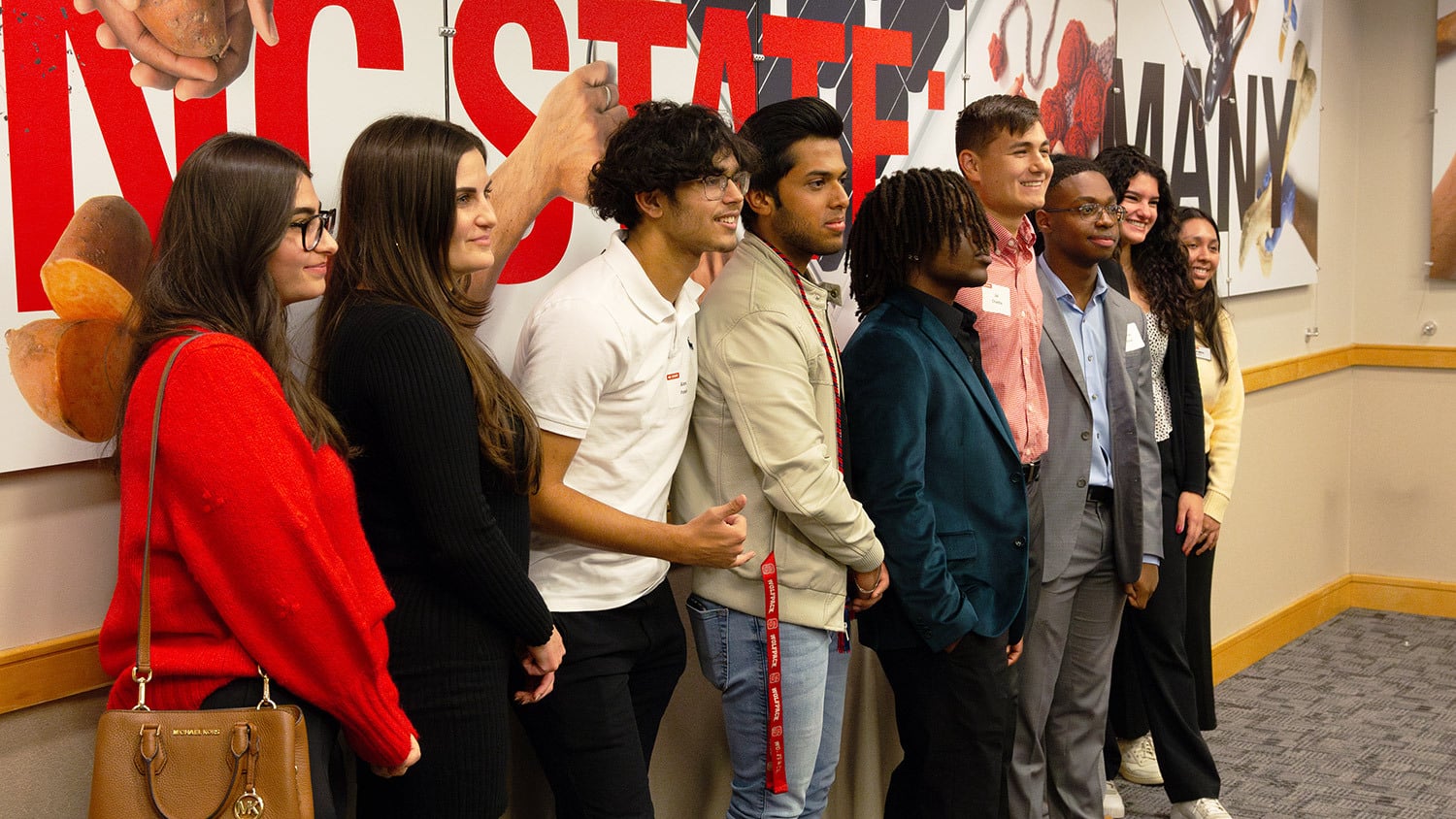
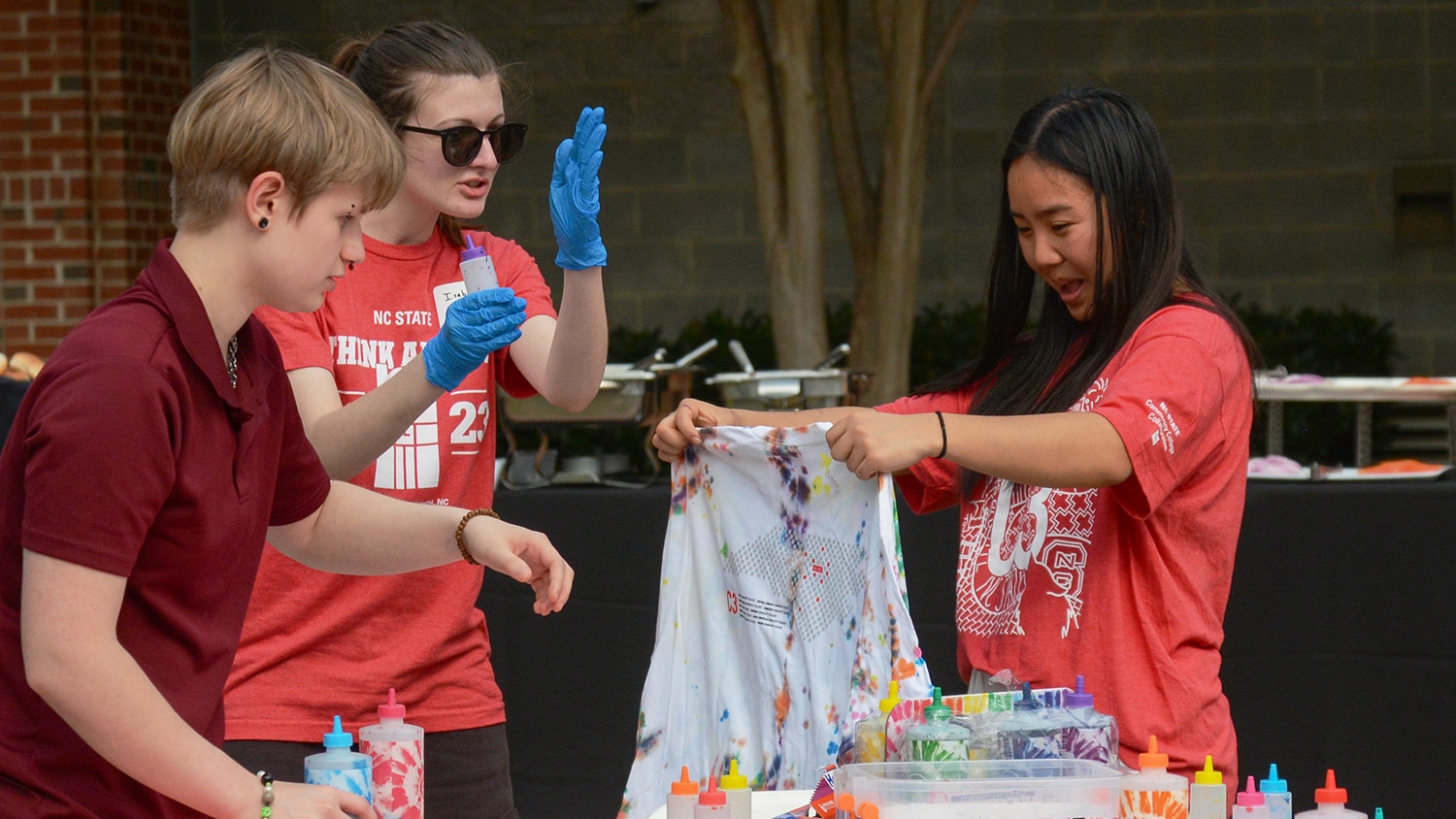
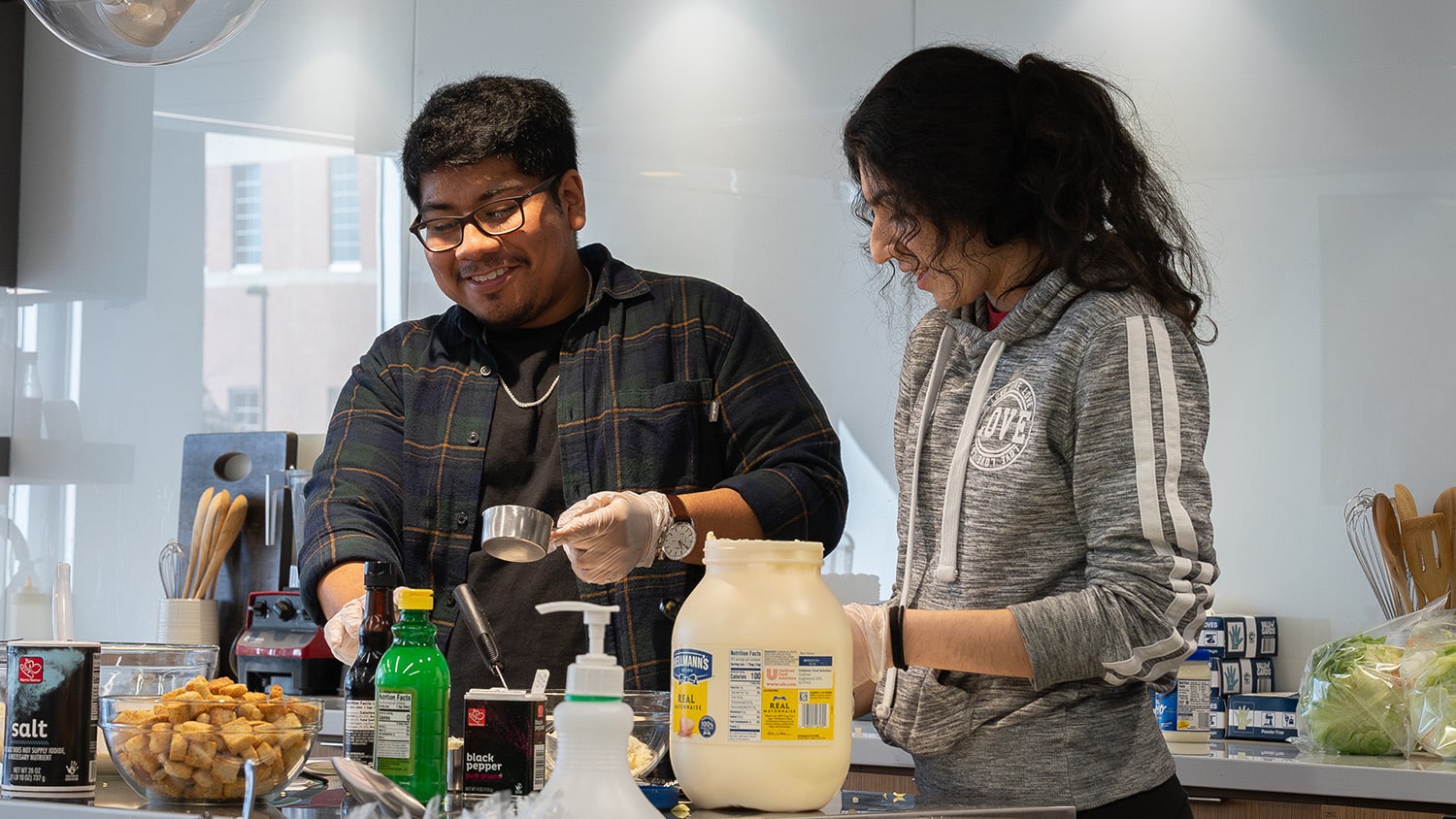
Chadha enrolled at Wake Tech directly after graduating high school, where he took advantage of C3’s networking opportunities to meet people, jumpstarting his transfer experience to NC State. “One of the main things that I wanted coming into NC State was a sense of community,” said Chadha, now a junior working towards his bachelor’s in accounting. He took that momentum and ran with it, literally. As a C3 ambassador, Chadha leads events, including organizing other C3 students to participate in the Krispy Kreme Challenge — an annual race and NC State tradition.
Supporting Academics
The built-in academic support and tools provided by C3 also give students a leg up throughout their transfer experience. While enrolled in a community college, students meet with dedicated C3 advisors to discuss academic interests, goals and the degree programs that might be a good fit.
Students also receive guidance on which classes will transfer toward their intended major. C3’s online tools allow students to track progress and stay informed about how their community college credits fulfill NC State degree requirements.
“Our goal is to make sure that they’re taking the right courses for their particular major at NC State,” said Harmening. “Not just a math, but the math you need as a business major versus as a communication major versus as an engineering major.”
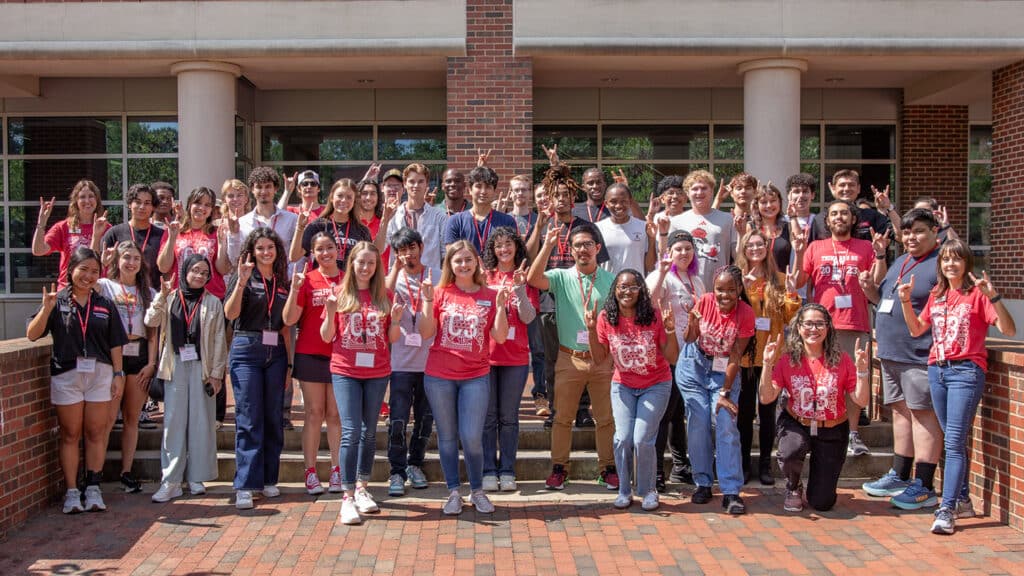
Combined, C3’s advising and online tools for aligning coursework toward degree requirements remove the guesswork community college students often face when transferring to a four-year school.
Broadening Access
While NC State ranks as one of the best values among colleges and universities nationwide, the C3 program provides students with a way to reduce the financial barriers they face on their path to a bachelor’s degree. Earning college credits at a community college, where tuition is lower than at most four-year schools, makes higher education more affordable for many students.
“Having that C3 group has definitely made transferring [to NC State] a lot easier.”
Partnering with 19 community colleges across North Carolina, C3 helps North Carolinians from diverse backgrounds and experiences — including first-generation college students, military-affiliated students and those from rural communities — to complete their bachelor’s degrees. Recent high school graduates benefit as much as someone who hasn’t been in a classroom for years while they worked or raised a family.
“C3 allows students to start small and finish big,” said Harmening. “And in doing so, they build the confidence they need.”
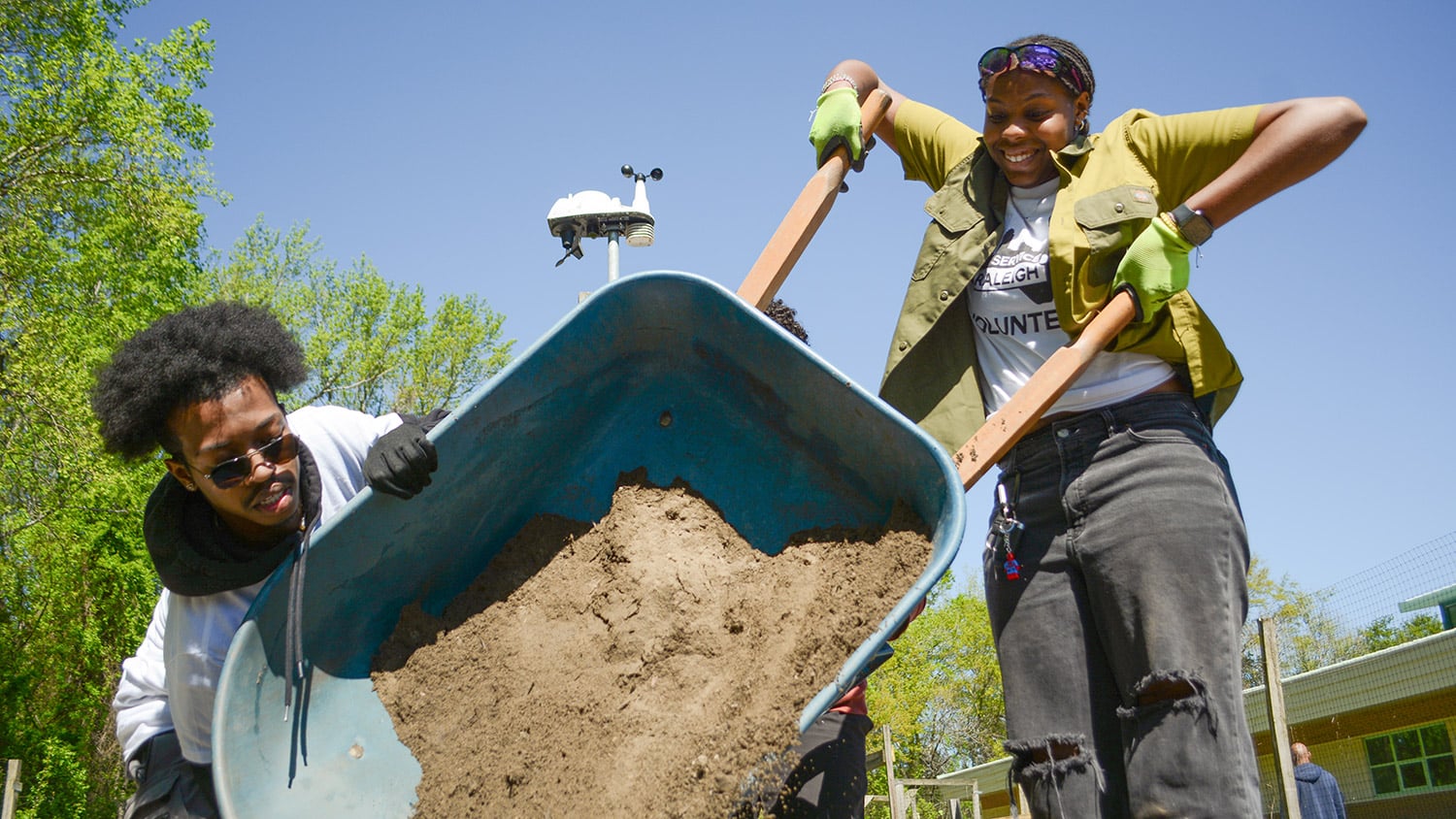
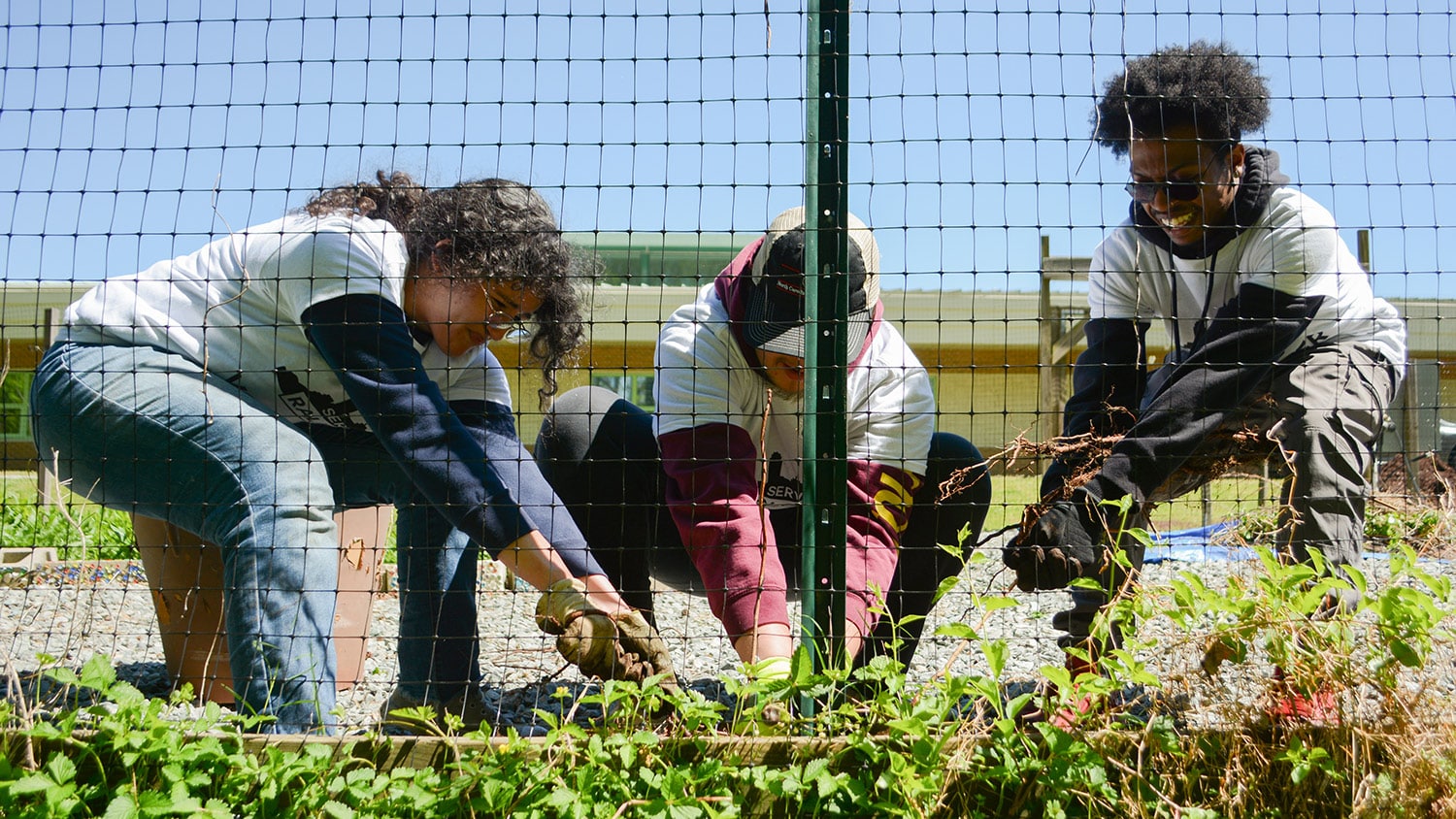
The program’s success is in the data. Among community college students transferring to NC State with associate degrees, C3 students have higher retention and graduation rates than their non-C3 peers.
Harmening said the data highlights how C3 helps fulfill NC State’s mission “to serve all of the people of North Carolina.”
She understands personally some of the challenges that transfer students face. Early in her college career, she transferred from a small town in southeastern North Carolina to NC State before eventually becoming the director of C3. She knows how important it is for transfer students to feel like they have support and someone cheering them on.
Fortunately for C3 students, the program creates a culture where they find that support and encouragement from their advisors and peers.
“Having that C3 group has definitely made transferring a lot easier,” said Chadha. “And because the C3 students have all had the same experience, [we] can all empathize and be there for each other.”
- Categories:
